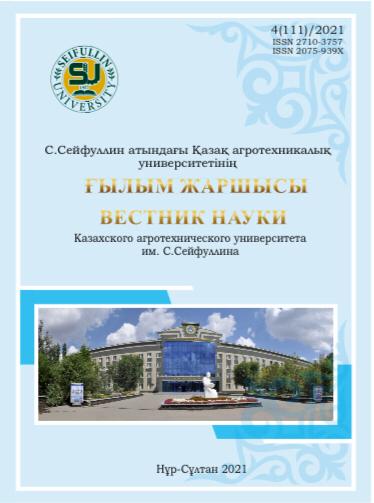MICROBIOLOGICAL ASSESSMENT OF CHEESE PRODUCTS OF KAZAKHSTANI PRODUCERS
DOI:
https://doi.org/10.51452/kazatu.2021.4(111).833Keywords:
cheese, Compact Dry, mass spectrometry, identification, Escherichia coliAbstract
In order to identify the level of contamination with opportunistic and pathogenic microorganisms, 57 samples of 19 varieties of cheese were examined, incl. one hard cheese, 9 semi-hard, five soft and four salty cheeses offered by producers of the northern, central and eastern regions of Kazakhstan using classical microbiological, mass spectrometric methods and Compact Dry EU commercial plates (R-Biopharm AG, Germany). Semi-hard, soft and salty cheeses have been found to be contaminated with Coliform species and Salmonella spp. Four species of the Enterobacteriaceae family, namely E.coli, Enterobacter cloacae, Citrobacter freundii, and Citrobacter braakii, were identified by MALDI-TOF Biotyper mass spectrometer (Bruker, Germany). The overall level of cheese samples’ bacterial contamination was 68.4%, and these microorganisms were found in products of eight producers among eleven producers in studied regions. Microorganisms were not isolated from hard cheeses, 44.4% semi-hard and 25% salted cheeses. It was found that 100% of soft cheeses are contaminated with Coliform species. E.coli was found in 39 of 57 tested cheese samples.

